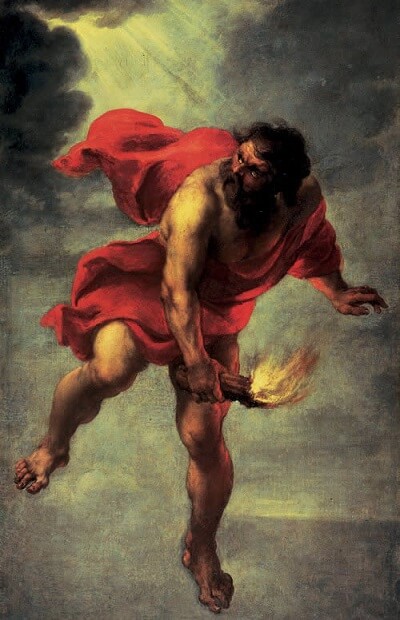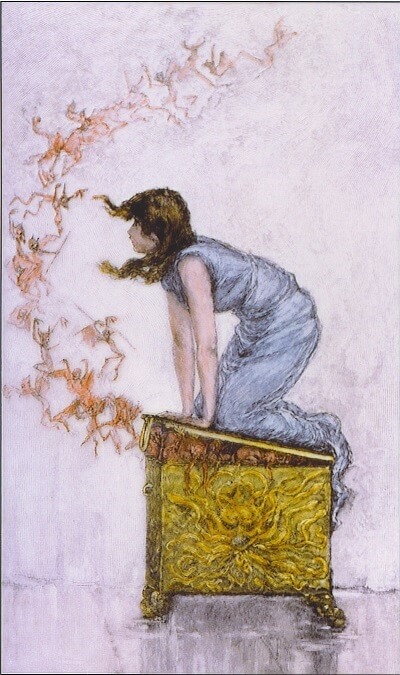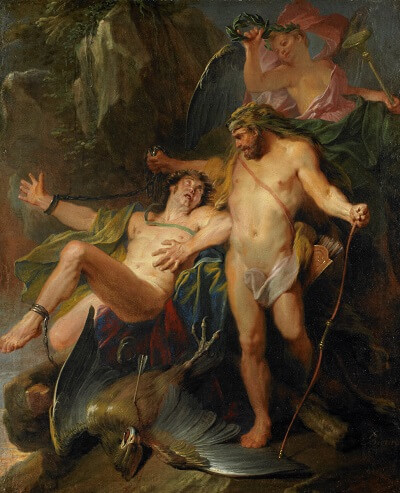Activity 1: Recite the Book Information
- Recite the name of the author, the title of the book, and the title of the chapter.
Activity 2: Narrate the Story
- Narrate the events aloud in your own words.
Activity 3: Study the Story Picture(s)
- Study the story picture(s) and verbally describe the relation to the story.
Activity 4: Map the Story
- In the story, Prometheus sends Io to the Nile River.
- Find Egypt and the Nile River on the map of Africa.
Activity 5: Playact Pandora
- Pretend you are Pandora.
- Act out receiving the beautiful golden casket from Zeus/Jupiter.
- Pretend to open the casket and react with horror when you unleash evil unto the world.
- Slam the lid shut before Foreboding can escape.
Activity 6: Complete Written Narration

- Click the crayon above, and complete page 191 of 'Fourth Grade Prose: Written Narration, Dictation, and Review Questions.'
Activity 7: Complete Copywork and Dictation

- Click the crayon above, and complete pages 191-192 of 'Fourth Grade Prose: Written Narration, Dictation, and Review Questions.'
Activity 8: Match the Greek and Roman Names

- Click the crayon above, and complete page 192 of 'Fourth Grade Prose: Written Narration, Dictation, and Review Questions.'
Activity 9: Color the Mythological Character and the Celestial Body

- Click the crayon above, and complete page 193 of 'Fourth Grade Prose: Written Narration, Dictation, and Review Questions.'
Activity 10: Answer Written Review Questions

- Click the crayon above, and complete page 194 of 'Fourth Grade Prose: Written Narration, Dictation, and Review Questions.'
 Old Greek Stories
Greek Stories
Old Greek Stories
Greek Stories




 Old Greek Stories
Greek Stories
Old Greek Stories
Greek Stories







